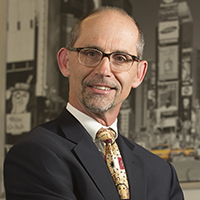Cultivating Planning Career Resilience

Right now, addressing the immediate prevention, health, and economic consequences of COVID-19 is everybody's priority. These near-term issues are likely taking most of your attention, but if you have room left to consider the longer-term implications of the pandemic for your planning career, read on.
The planning job market has been very strong in the years leading up to this moment. As you might imagine, the pandemic will lead to layoffs and fewer new hires.
Planning Careers: Realism with Idealism
During the Great Recession, some planning graduates could not find planning employment: some were delayed in entering the profession and some left it permanently to work in other fields. This led to a shortage of mid-career planners in the recent boom.
Going forward, government agencies will have less tax revenue. Consulting, design, and creative agency clients may pull back, and nonprofit organizations will be squeezed. Of course, stimulus spending and economic recovery programs may create focused opportunities such as economic development.
In normal times, I advise planning job seekers to seek the most innovative and well-managed places to work. While that is always a good idea, the perfect job might not be possible now. It is time to consider strategy.
Strategic Planning for Job Seekers
Most planners bring a sense of idealism to their chosen profession. Yet now is a time for realism. Your career is a long road that extends far beyond this crisis; there are good ways to keep idealism alive while forging a realistic path. If you have been laid off, or are graduating from planning school, here are some ideas:
Claim the defining characteristics of a planner
A planner is a professional who is an adept and innovative problem-solver. Planners' concerns with comprehensiveness, long-term thinking, and equity offer useful insights across a broad range of fields. Our ability to add reason to decision-making processes extends far beyond traditional planning jobs. Consider a broader range of career paths than traditional routes.
Network, make cold calls and do informational interviews remotely
They could yield a job now, but also in a year or two. Even in bad times, employers are interested in having a pool of talent to draw upon. Some employers may be reluctant to take on permanent staff; two part-time contract positions might be enough to get you through until the market improves.
Apply to targeted jobs
Rather than taking a scattershot approach, apply to targeted jobs with thoroughness. Focus on job recruitments that are less likely to be canceled (generally, in larger organizations). But even posted recruitments may be put on hold. Don't take it personally if a particular job doesn't come through.
Follow the money
While the pandemic does not require the rebuilding of infrastructure as do natural disasters and wars, it will require economic development initiatives, new partnerships with public health professionals, increased resiliency planning, and changes in the way in which infrastructure systems are managed and operated. Initiatives by government agencies, the private sector, and foundations may create funding opportunities.
If you take a job that doesn't have the word "planner" in the title ...
... assess whether this is a temporary move or leads you permanently to other areas of professional practice. If you intend to reenter the planning profession, develop a game plan for that. Options include continuing education in planning, seeking AICP certification, attending conferences, working on community and grassroots planning issues, and staying involved with APA activities.
Distinguish Yourself from Other Candidates
Identify and take advantage of elements that distinguish you from other job planning candidates, as is true for your situation. Recent graduates will compete with more experienced, laid-off planning professionals. They can distinguish themselves with their skills: technological savvy (e.g., GIS, big data, social media, etc.) or new methods (e.g., activity-based transportation models, resiliency planning, etc.). They may be willing to work part-time or for less money, and/or willing to relocate. On the other hand, laid-off professionals can gain an advantage by emphasizing their maturity, experience, track record in organizations, accomplishments, and political and administrative savvy.
Planners who are fortunate to have stable jobs during this period should support the profession and help those who are temporarily outside the profession so that they may one day return.
This assistance can take the form of mentoring, engagement in APA activities, offering new kinds of part-time work and/or work sharing, and harnessing community-based efforts. The pandemic has made me realize how many things I previously took for granted, including the continuing progress of the profession.
Planning is a noble profession; we need to rally around to get through this difficult period.
This blog series is amplified in Richard Willson's book, A Guide for the Idealist: How to Launch and Navigate Your Planning Career. The book includes perspectives, tools, advice, and personal anecdotes. It is available now at Routledge, Amazon, and most retailers.
Top image: Getty Images photo.



